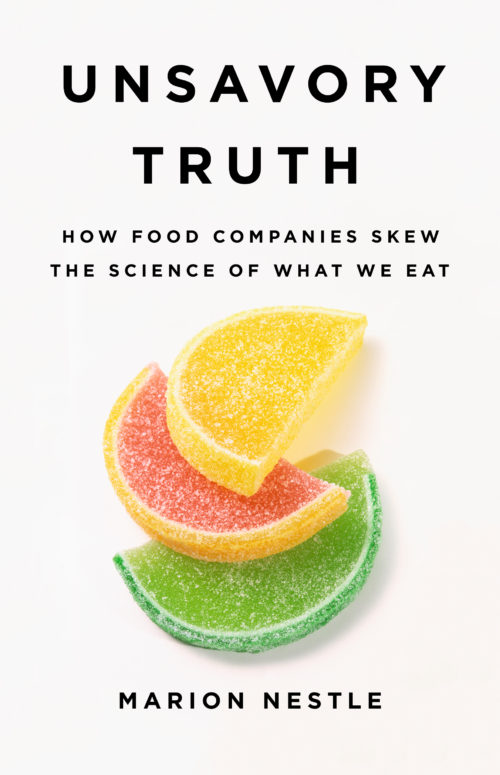Unsavory Truth: The Blurbs
Coming October 30: My new book about food company sponsorship of nutrition research and its effects on public health.
Here is what some early readers had to say about it:
“What happens when one of the country’s great nutrition investigators follows the money in food and science? You get this riveting, provocatively-written book, which deftly explores how the processed food industry has deepened our dependence on its products by sponsoring and manipulating food research for decades. This book should be read by anyone who has been seduced by the words, ‘New study shows…’—which is all of us.” —Michael Moss, author of Salt Sugar Fat
“Marion Nestle is a tireless warrior for public health, and her meticulous research and irrefutable arguments are desperately needed right now. This book, as frightening as it is, compels us to discover where true health begins: nutrition starts in the ground, with real food that is sustainably grown, eaten in season, and alive.” —Alice Waters, founder, owner, and executive chef of Chez Panisse
“In clear, concise language, Marion Nestle details the many ways our ideas about what to eat are being manipulated by Big Food. If you want to make better choices, read this book.” —Ruth Reichl, former editor of Gourmet Magazine
“Marion Nestle is a national treasure. She has the courage to take on multinational corporations and the wisdom to separate the facts from the spin. If you care about our food system and the health of your family, Unsavory Truth is essential reading.” —Eric Schlosser, author of Fast Food Nation
“Marion Nestle has been a guiding light for sanity, credibility, and justice in food and nutrition for decades; she stands alone in her field. In Unsavory Truth, she exposes the awful deceptions practiced on eaters by manipulative food companies using ‘scientific research’ try to make themselves look good.” —Mark Bittman, author of How to Cook Everything
“Marion Nestle is a truth-teller in a world awash with nutrition lies of one kind and another. In this scintillating and eye-opening book, Nestle reveals how much of our confusion about food in modern times has been spread by the food industry itself, which passes off marketing as science and funds ‘research’ designed to show that its products are harmless. Unsavory Truth is essential reading for anyone in search of hard facts about what to eat.” —Bee Wilson, author of First Bite and Consider the Fork

